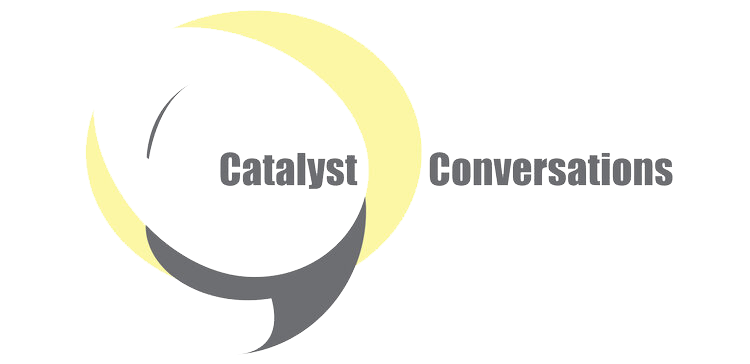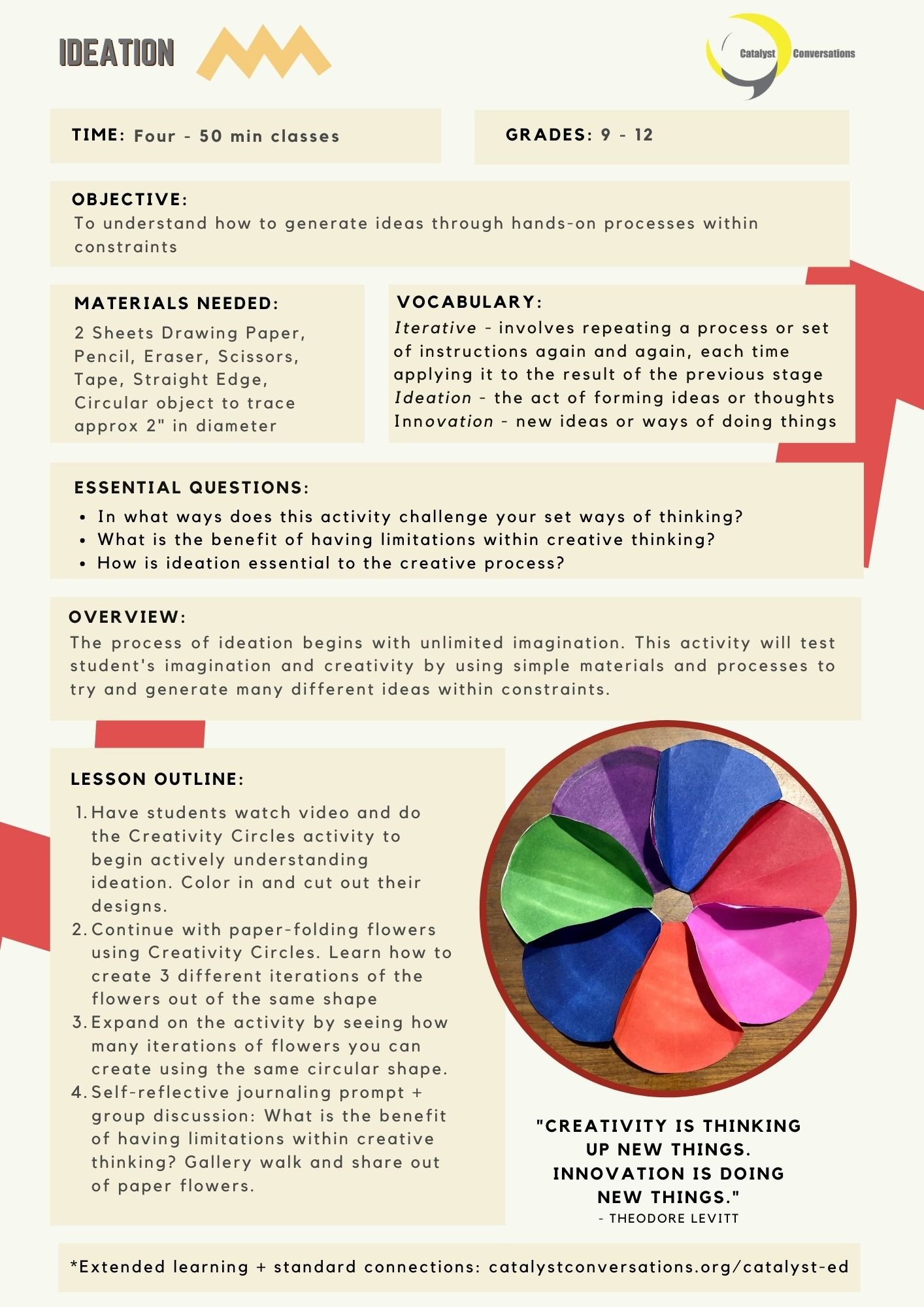Catalyst ED: Ideation
curriculum guide
Download Curriculum Guide (PDF)
Extended Learning Materials & Art and Science Standards Connections
Additional Vocab:
Ideation - the act of forming ideas or thoughts
Brain Plasticity (Neuroplasticity) - the ability of the brain to form and reorganize synaptic connections, especially in response to learning or experience or following injury
Constraint - something limiting or restricting
Extended Learning:
Apply the process of ideation to another project or to find a solution for a problem- how can this process help generate at least 3 ideas or solutions which are different from your original idea?
How is paper folding influencing the field of engineering? Watch this video to see how engineers use origami to ideate. Engineering with Origami
Learn more about neuroplasticity here: Neuroplasticity Explained + https://www.brainhq.com/brain-resources/brain-plasticity/what-is-brain-plasticity/
What is something you can do to have more flexibility in your thinking? Inspired by the video, Engineering with Origami use paper folding to create a model of something that can solve a problem or be functional in the world.
Art Standards:
Anchor Standard 2: HS Accomplished VA:Cr2.1.IIa
Through experimentation, practice, and persistence, demonstrate acquisition of skills and knowledge in a chosen art form.
Anchor Standard 7: HS Proficient VA:Re.7.1.Ia
Hypothesize ways in which art influences perception and understanding of human experiences.
NGSS Practices:
HS-ETS1-2.
Design a solution to a complex real-world problem by breaking it down into smaller, more manageable problems that can be solved through engineering.
HS-ETS1-3.
Evaluate a solution to a complex real-world problem based on prioritized criteria and trade-offs that account for a range of constraints, including cost, safety, reliability, and aesthetics as well as possible social, cultural, and environmental impacts.
Catalyst ED brings leading STEAM education experts into your classroom through hands-on activities designed to engage high school students in creative thinking in both the arts and sciences. Catalyst ED video lessons were produced with the support of a COVID-19 Emergency & Recovery Grant from the City of Cambridge, MA. Catalyst ED materials were developed by STEAM educator Kyle Browne with a scientific education review by Natacha Meyer.
Kyle Browne is a Boston-based artist and educator. She has put the 'A' in STEAM curriculum as an arts education consultant with the Cambridge Public Schools, MIT, Lesley University and the Cambridge STEAM Initiative. She teaches highschool visual art and design with Boston Public Schools and has a multi-disciplinary art practice. Her work is exhibited regularly around Boston and she enjoys nature-based experiences. Natacha Meyer is a science education consultant with experience working at the Museum of Science and the Cambridge STEAM Initiative. Kyle and Natacha developed the STEAM Habits of Mind together for the Cambridge STEAM Initiative.

